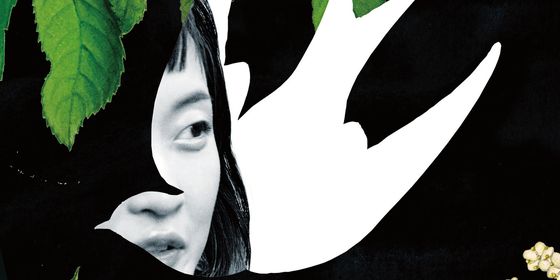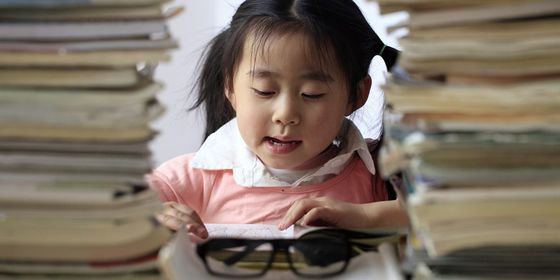Unmarried celebrity parents starts discussion of reproductive rights for men and women in China
After a period of denial, Chinese singer Hua Chenyu took to social media to confirm the rumors: “Yes, we do have a child,” he wrote on Weibo on January 22, in response to an anonymous leak online.
The scandal was that the child’s mother, singer Zhang Bichen, had apparently hidden her pregnancy from Hua until after the child was born. What’s more, the couple announced they would raise their child together without getting married.
The incident has caused a ruckus on Chinese media, with consternation already raging over a surrogacy scandal involving actor Zheng Shuang and her ex-boyfriend. Now, 30-year-old Hua and 31-year-old Zhang’s secret child has ignited even more debate on the reproductive rights of women and men, and the morality of premarital sex and childrearing outside of marriage.
“In autumn of 2018, I totally lost my mind upon discovering I was pregnant…we hadn’t had any plan for marriage and childbearing, at least not in a couple of years,” Zhang attempted to explain on Weibo.
Zhang revealed the child to Hua after she “realized that I should not deprive the child of the right to have a father and [Hua] the right to make choices as a dad.” Hua, for his part, described in a later post how cute their daughter is and how he cherishes her despite his initial surprise.
Though Chinese have become more open-minded to premarital sex in recent years, the secrecy of the pregnancy and the subsequent announcement by Hua’s studio surpised netizens who also noted that the two had never publicly announced that they were a couple—Hua previously described their relationship as that of “buddies (哥们儿).” Within one day, the hashtag “Hua Chenyu admitted that he and Zhang Bichen have a child” received more than 440 million views and 700,000 discussions on Weibo.
Amid various conspiracy theories—such as that Zhang left because Hua wanted her to have an abortion, and that Hua only accepted the child after witnessing vicious criticism toward Zheng Shuang, who has been blacklisted by the Chinese entertainment industry after being accused of abandoning her two children born in the US via surrogacy (which is illegal in China). Some netizens also questioned whether Zhang’s had the right to have the baby without informing Hua, and whether she violated Hua’s “right to know” and reproductive freedom.
Beijing lawyer Gao Yueming told The Paper that, judging from Zhang’s statement, it appears that neither party was under duress in starting the pregnancy, and that it was the result of “mutual love.” After the pregnancy, the woman has the right to decide whether to give birth to the child, Gao explained, regardless of whether the father approved or not.
Zhang Jin, deputy director of the Marriage and Family Committee of the Beijing Lawyers’ Association, agreed: “The final decision-making power over reproduction lies with women,” she told The Paper.
According to Zhang Jin, the law bestows women authority in this subject because they are mainly responsible for the pregnancy, delivery, and feeding of the baby. “It won’t be counted as an infringement of men’s reproductive rights when a pregnant woman has an abortion against their partner’s will,” she added, citing the article “Women have the right to give birth to children, and the freedom not to” from the Law on the Protection of Rights and Interests of Women.
This is not the first controversy over men’s reproductive rights. In a 2013 Beijing lawsuit, a man unsuccessfully sued his ex-girlfriend for infringing his fertility rights, because she apparently broke their agreement to use contraception, secretly became pregnant, and then insisted on giving birth to the child despite his objections. The court ruled against the man, saying that the woman did not violate his right to know, even though she might have gotten pregnant in a deceptive way.
However, women and men do have equal right to know concerning what hospitals do with frozen embryos used in assisted reproductive technology (ART), according to lawyer Zhang Jin. In China’s first case on compensation over discarded embryos in 2018, a defendant surnamed Wang in Nanjing, Jiangsu province, was told to compensate 50,000 RMB to his wife (whom he was divorcing at the time) for having the hospital discard her five frozen embryos without informing her.
Since the 1950s, China’s Marriage Law has stipulated that children born out of wedlock have the same rights with those born in wedlock. The Civil Code, implemented this January of this year, also emphasizes that the biological mother or father of children born out of wedlock, if they are not involved in raising the children, must pay child support until their children reach adulthood.
However, unmarried parents and their children still face many legal hurdles. In the 1980s, China’s family planning policy, informally known as the “one-child policy,” stipulated a “social compensation fee” for all “unplanned births,” including children born out of wedlock and outside of the parents’ birth quota. Prior to 2016, parents were required to submit a marriage certificate to enroll their child in the household registration system, or hukou, which is essential for accessing public education, social security, and other social benefits.
The labyrinthine rules and heavy fines are blamed for creating over one million unregistered “illegitimate” children nationwide, according to a 2014 estimates. Since January 2016, some Chinese cities have done away with the marriage certificate requirement for children’s hukou: A statement of the parents’ unmarried status, and a paternity test result if registering under the father’s hukou, are acceptable alternatives. With the relaxation of the “one child policy” in 2015, which allowed urban couples to have two children, the fine has also been reduced in some cities.
Money is unlikely to be a concern for the unmarried Zhang and Hua however: both are celebrities, and Hua is well known as a fu’erdai (child of a wealthy family). More pressing for Hua might be the slow drip of leaks on his supposed relationship with several other women that has continued as the scandal rumbles on—especially since Hua has cultivaed a strong public persona as an innocent and purehearted “boy” devoted to love and music.












